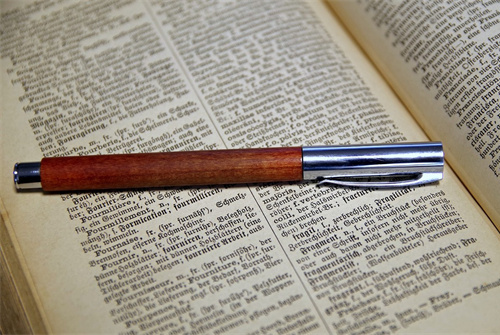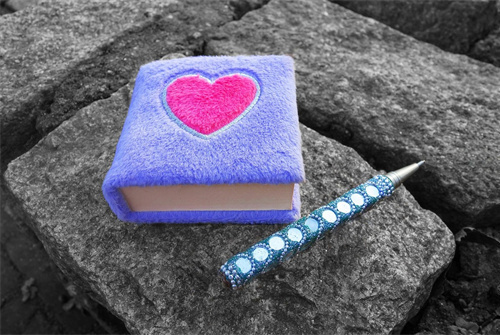莎士比亞最經(jīng)典語(yǔ)錄英文版

莎士比亞深感人文主義理想與現(xiàn)實(shí)的矛盾越來(lái)越加劇,創(chuàng)作風(fēng)格也從明快樂(lè)觀變?yōu)殛幱舯瘧崳渌鶎?xiě)的悲劇也不是重在歌頌人文主義理想,而是重在揭露批判社會(huì)的種種罪惡和黑暗。下面是雨露文章網(wǎng)小編為大家整理收集的關(guān)于莎士比亞的經(jīng)典語(yǔ)錄英文版,歡迎大家的閱讀。
【第1句】:love ithe season yizhenyin sigh; the eyehave it purified the loverof mars; love it aroused waveof tears、 it ithe wisdom of madness, choking bitterness, it doenot tip of honey、愛(ài)情是嘆息吹起的一陣煙;戀人的眼中有它凈化了的火星;戀人的眼淚是它激起的波濤。它又是最智慧的瘋狂,哽喉的苦味,吃不到嘴的蜜糖。
【第2句】:sweet love you, precious, i disdained the situation with regard emperorswap你甜蜜的愛(ài),就是珍寶,我不屑把處境跟帝王對(duì)調(diào)
【第3句】:love to talk about a bit of a surprise to people to learn the total patient injury談一場(chǎng)戀愛(ài) 學(xué)會(huì)了忍耐 總有些意外 會(huì)讓人受傷害
【第4句】:since the little wit that foolhave wasilenc’d, the little foolerthat wise men have makea great show、 (ayou like it, 2)自從傻子小小的聰明被壓制得無(wú)聲無(wú)息,聰明人小小的傻氣顯得更吸引眼球了。――《皆大歡喜》
【第5句】:love to talk about a bit of a surprise to people to learn the total patient injury談一場(chǎng)戀愛(ài) 學(xué)會(huì)了忍耐 總有些意外 會(huì)讓人受傷害
【第6句】:o, she dothe teach the torcheto burn bright! (romeo and juliet 5)啊!火炬不及她那么明亮。――《羅密歐與朱麗葉》
【第7句】:the course of true love never did run smooth、 (a midsummer night’dream 1)真愛(ài)無(wú)坦途。 ――《仲夏夜之夢(mèng)》/真誠(chéng)的愛(ài)情之路永不會(huì)是平坦的。
【第8句】:ove ia woman with the ears, and if the men will love, but love ito use your eyes。女人是用耳朵戀愛(ài)的,而男人如果會(huì)產(chǎn)生愛(ài)情的話,卻是用眼睛來(lái)戀愛(ài)。
【第9句】:etter a wittfool than a foolish wit、寧為聰明的愚夫,不作愚蠢的才子。
【第10句】:thingbase and vile, holding no quantity, love can transpose to from and dignity: love looknot with the eyes, but with mind、 (a midsummer night’dream 1)卑賤和劣行在愛(ài)情看來(lái)都不算數(shù),都可以被轉(zhuǎn)化成美滿和莊嚴(yán):愛(ài)情不用眼睛辨別,而是用心靈來(lái)判斷/愛(ài)用的不是眼睛,而是心。――《仲夏夜之夢(mèng)》
【第11句】: would like now to seriouslindifferent room of wonderful。我只想現(xiàn)在認(rèn)真過(guò)的精彩無(wú)所謂好與壞。
【第12句】:the time of life ishort ; to spend that shortnesbasely, it would be too long 、人生苦短,若虛度年華,則短暫的人生就太長(zhǎng)了。
【第13句】:it ithe east, and juliet ithe sun、 (romeo and juliet 2)那是東方,而朱麗葉就是太陽(yáng)。――《羅密歐與朱麗葉》
【第14句】:love imerela madness、 (ayou like it, 2)愛(ài)情不過(guò)是一種瘋狂。――《皆大歡喜》
【第15句】:a light heart livelong 、豁達(dá)者長(zhǎng)壽。
【第16句】:monllove sprung from monlhate ! (romeo and juliet 5)我唯一的愛(ài)來(lái)自我唯一的恨。――《羅密歐與朱麗葉》
【第17句】:fair ifoul, and foul ifair、 (macbeth 1)美即是丑,丑即是美。――《麥克白》
【第18句】:o, how bitter a thing it ito look into happinesthrough another man’eyes! (ayou like it)唉!從別人的眼中看到幸福,自己真有說(shuō)不出的酸楚!――《皆大歡喜》
【第19句】:f you understand the value of love and love you have given me i have to wait for the future。只要你明白,珍惜愛(ài)與被愛(ài),我愿意等待,你給我的未來(lái)。
【第20句】:o not, for one repulse, give up the purpose that you resolved to effect、不要只因一次失敗,就放棄你原來(lái)決心想達(dá)到的目的。
【第21句】:aughter ithe root of all evil、笑是一切罪惡的根源
【第22句】:he emptvesselmake the greatest sound 、滿瓶不響,半瓶咣當(dāng)。
【第23句】:what’in a name? that which we call a rose banother word would smell asweet、 (romeo and juliet 2)名字中有什么呢?把玫瑰叫成別的名字,它還是一樣的芬芳。――《羅密歐與朱麗葉》/名稱有什么關(guān)系呢?玫瑰不叫玫瑰,依然芳香如故。
【第24句】:here inothing either good or bad, but thinking makeit so世間本無(wú)善惡,但看個(gè)人想法。
【第25句】:love’not love when it imingled with regardthat standaloof from th’entire point、 (king lear 1)愛(ài)情里面要是攙雜了和它本身無(wú)關(guān)的算計(jì),那就不是真的愛(ài)情。――《李爾王》
【第26句】: light heart livelong、豁達(dá)者長(zhǎng)壽。
【第27句】:ove, and the same charcoal, burning, needto find wayto ask cooling、 allow an arbitrary, it inecessarto heart charred。愛(ài),和炭相同,燒起來(lái),得想辦法叫它冷卻。任由它來(lái),那就要把一顆心燒焦。
【第28句】:there inothing either good or bad, but thinking makeit so、 (hamlet 2)世上之事物本無(wú)善惡之分,思想使然。――《哈姆雷特》/沒(méi)有什么事是好的或壞的,但思想?yún)s使其中有所不同。
【第29句】:here inothing either good or bad, but thinking makeit so世間本無(wú)善惡,但看個(gè)人想法。
【第30句】:to be or not to be, that ia question、生存還是毀滅,這是一個(gè)值得考慮的問(wèn)題
【第31句】:This above all: to thine self be true、 (Hamlet 【第1句】:3)
最重要的是,你必須對(duì)自己忠實(shí)。――《哈姆雷特》
【第32句】:The time is out of joint ? O, cursed spite, that ever I was born to set it right! (Hamlet 【第1句】:5)
這是一個(gè)禮崩樂(lè)壞的時(shí)代,唉!倒霉的我卻要負(fù)起重整乾坤的責(zé)任。――《哈姆雷特》
【第33句】:Brevity is the soul of wit、 (Hamlet 【第2句】:2)
簡(jiǎn)潔是智慧的靈魂,冗長(zhǎng)是膚淺的藻飾。/言貴簡(jiǎn)潔。――《哈姆雷特》
【第34句】:There are more things in heaven and earth, Horatio, than are dreamt of in your philosophy、 (Hamlet 【第1句】:5)
天地之間有許多事情,是你的睿智所無(wú)法想象的。――《哈姆雷特》/在這天地間有許多事情是人類哲學(xué)所不能解釋的。
【第35句】:There is nothing either good or bad, but thinking makes it so、 (Hamlet 【第2句】:2)
世上之事物本無(wú)善惡之分,思想使然。――《哈姆雷特》/沒(méi)有什么事是好的或壞的,但思想?yún)s使其中有所不同。
【第36句】:To be or not to be: that is a question、 (Hamlet 【第3句】:1)
生存還是毀滅,這是個(gè)值得考慮的問(wèn)題。――《哈姆雷特》
【第37句】:There’s a special providence in the fall of a sparrow、 (Hamlet 【第5句】:2)
一只麻雀的生死都是命運(yùn)預(yù)先注定的。――《哈姆雷特》
【第38句】:The rest is silence、 (Hamlet 【第5句】:2)
余下的只有沉默。――《哈姆雷特》
【第39句】:Keep up your bright swords, for the dew will rust them、 (Othello 【第1句】:2)
收起你們明晃晃的劍,它們沾了露水會(huì)生銹的。――《奧賽羅》
【第40句】:O, beware, my lord, of jealousy; it is the green-eyed monster which doth mock the meat it feeds on、 (Othello 【第3句】:3)
主帥啊,當(dāng)心你會(huì)嫉妒,那可是一只綠眼的妖魔,它慣于耍弄爪下的獵物。――《奧賽羅》
【第41句】:Good name in man and woman, dear my lord, is the immediate jewel of their souls: Who steals my purse steals trash; ’tis something, nothing、 (Othello 【第3句】:3)
無(wú)論男人女人,名譽(yù)是他們靈魂中最貼心的珍寶,如果有人偷走了我的錢袋,他不過(guò)偷走了一些廢物,那不過(guò)是些毫無(wú)價(jià)值的東西罷了。――《奧賽羅》
【第42句】:O, curse of marriage, that we can call these delicate creatures ours, and not their appetites! (Othello 【第3句】:3)
啊!婚姻的煩惱!我們可以把這些可愛(ài)的人兒據(jù)為己有,卻無(wú)法掌控她們的各種欲望。――《奧賽羅》
【第43句】:We cannot all be masters, nor all masters cannot be truly followed、 (Othello 【第1句】:3)
不是每個(gè)人都能做主人,也不是每個(gè)主人都能值得仆人忠心的服侍。――《奧賽羅》
【第44句】:Nothing will come of nothing、 (King Lear 【第1句】:1)
一無(wú)所有只能換來(lái)一無(wú)所有。――《李爾王》
【第45句】:Love’s not love when it is mingled with regards that stands aloof from th’entire point、 (King Lear 【第1句】:1)
愛(ài)情里面要是攙雜了和它本身無(wú)關(guān)的算計(jì),那就不是真的愛(ài)情。――《李爾王》
【第46句】:How sharper than a serpent's tooth is to have a thankless child、 (King Lear 【第1句】:4)
逆子無(wú)情甚于蛇蝎。――《李爾王》
【第47句】:Blow, winds, and crack cheeks! Rage! Blow! (King Lear 【第3句】:2)
吹吧!風(fēng)啊!吹破你的臉頰,猛烈地吹吧!――《李爾王》
【第48句】:‘Tis this times’ plague, when madmen lead the blind、 (King Lear 【第4句】:1)
瘋子帶瞎子走路,這就是這個(gè)時(shí)代的病態(tài)。――《李爾王》
【第49句】:Why should a dog, a horse, a rat, have life, and thou no breath at all? (King Lear 【第5句】:3)
為什么一條狗,一匹馬,一只耗子都有生命,而你卻沒(méi)有一絲的呼吸。――《李爾王》
【第50句】:Fair is foul, and foul is fair、 (Macbeth 【第1句】:1)
美即是丑,丑即是美。――《麥克白》









